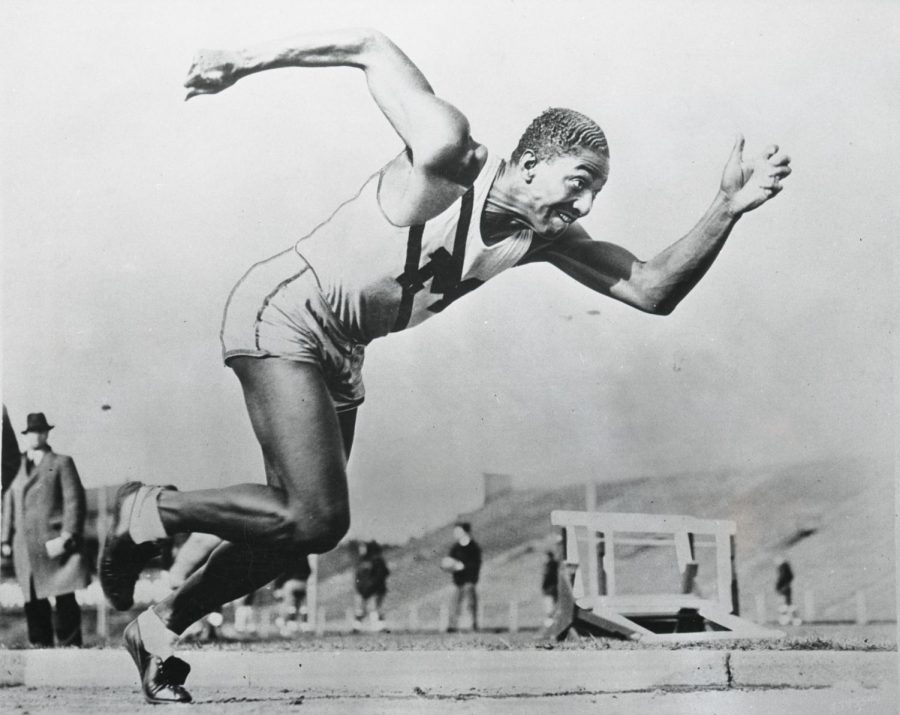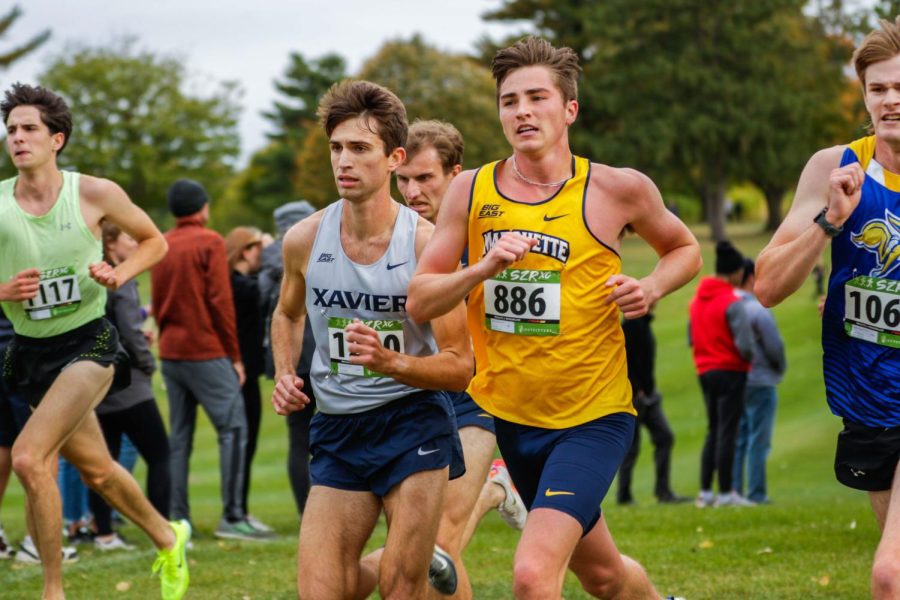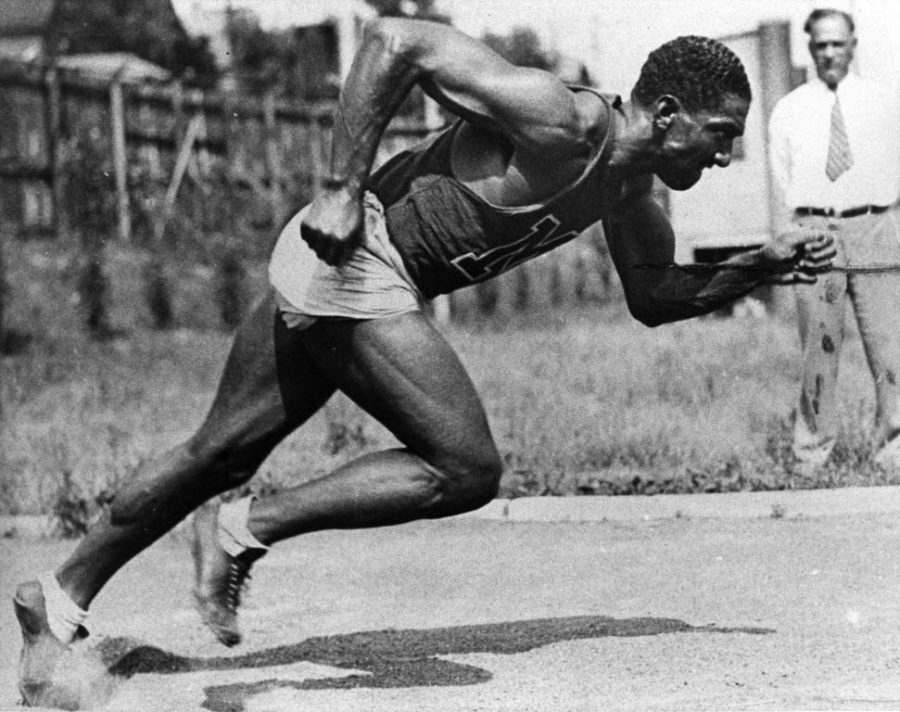When the average Marquette fan thinks about the university’s best athletes, basketball is inevitably the first thing to come to mind .
Not enough people know the name of Marquette’s most impressive athlete: Ralph Metcalfe.
Metcalfe, a sprinter that took a track scholarship to Marquette in 1930, was ahead of his time. He ran the 100-meter sprint in just 10.38 seconds in 1931 per the Marquette record books, a school record still standing 87 years later. It’s the oldest active individual record in program history by a considerable margin.
The odds of a track record lasting that long are infinitesimal. Training methods that are considered routine today – heartrate monitors, carefully controlled diets, sports performance specialists, etc. – were unheard of in that era. A sprinter from that era holding on to the record that long is like a Model T outracing a Ford Fusion.
The amazing part is not just that Metcalfe’s record has survived this long — it’s the magnitude by which people are still falling short of him. The fastest Marquette runner at the UNF Spring Break Invitational was Josh Word, who probably would have been part of a BIG EAST champion relay team last year if he didn’t tear his hamstring. He finished at 10.68 seconds, which is three-tenths of a second off Metcalfe’s record. It’s the same distance between Word’s fifth-place finish and the first place finish in the same event.
Metcalfe saved his best accomplishment for one of the strangest sporting events in world history: the 1936 Olympics in Berlin, Germany. Sports fans have heard of Jesse Owens, the American sprinter that won four gold medals with German chancellor and perpetrator of genocide Adolf Hitler looking on from the stands. Many fans don’t know there were 17 other African-American athletes in the American delegation, including Metcalfe.
Together, these competitors publicly dashed Hitler’s desire to see an Olympics entirely dominated by Aryan athletes. Owens’ dazzling performance in the 100-meter race is one of America’s proudest sporting moments, but Metcalfe finished with a silver medal, just a tenth of a second off Owens’ time. The sight of two African-Americans on the medal podium was so upsetting to Hitler, he refused to shake their hands or receive any medalists.
He saved his best performance for the 4×100 meter relay, where he and Owens helped America claim the gold medal by over one second. Years later, Owens credited Metcalfe’s words off the track for calming his American teammates down enough for them to win the gold.
“As we sat around the cottages at night, he counseled us,” Owens said to Dorothy Collin of the Chicago Tribune in 1978. “He was the guy who set us straight. He told us the deeds we were supposed to do … He said we were there for one purpose, to represent our country.”
Even those that remember Metcalfe often only do so for his athletic pursuits, which omits the extraordinary, purposeful life that followed. Less than a decade after competing in Nazi Germany, Metcalfe fought against Nazi Germany in World War II, reaching the rank of first lieutenant.
After returning from war, Metcalfe dove into politics, first as an alderman representing Chicago’s South Side, and then as a Democratic congressman in Illinois’ first district. At the time, Chicago Mayor Richard Daley controlled everything in the local Democratic party, staffing city and statewide offices with loyalists and yes-men. Metcalfe’s proudest achievement was the moment he risked his place in Daley’s hierarchy to stand for something.
In April 1972, two black dentists, Dr. Herbert Odom and Dr. Daniel Clairborn, were victims of police brutality. Odom was physically assaulted by police during a traffic stop, then charged with resisting arrest. Police held Clairborn in custody for drunk driving when he had really suffered a stroke.
In response, Metcalfe called a meeting with prominent African-American leaders and asked the mayor to attend. When he refused, Metcalfe commissioned a report entitled “The Misuse of Police Authority in Chicago.” Because of that report and his statements condemning Daley over what he perceived as a relaxed attitude toward police brutality, Daley revoked Metcalfe’s ability to dole out patronage jobs and set up a primary challenger in the next election.
There’s something we can all learn from Metcalfe’s excellence, commitment to principles and steadfast refusal to flinch under pressure: He ought to be as celebrated a part of Marquette lore as any person to ever attend this university.




Valerie Wilson Reed • Oct 24, 2020 at 7:53 am
There is also a Ralph H.Metcalfe, Sr. Scholarship which is awarded each year to 2 African American students through the MU Black Alumni Association.
Jeff Mirkes • Oct 24, 2020 at 12:49 am
A talented athlete, a true American Great, and a purpose driven life!
Matt Johnson • Apr 23, 2018 at 11:13 am
Marquette Athletics honors Ralph Metcalfe and 6 senior student-athletes (3 female, 3 male) every year with the Ralph H. Metcalfe Senior Awards for Academic Excellence, Athletic Excellence and Service to Others.
Steve Rodecap • Apr 18, 2018 at 2:48 pm
Very nice article. ..I was well aware of his accomplishments on the trackfield but not about the man himself. Thank you.